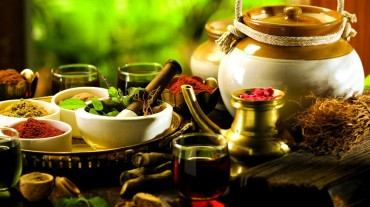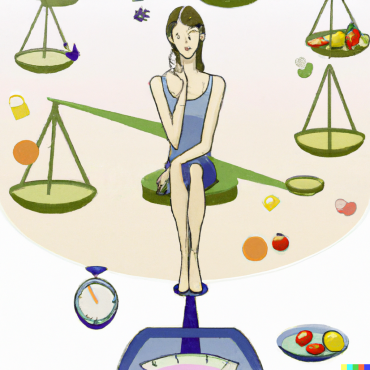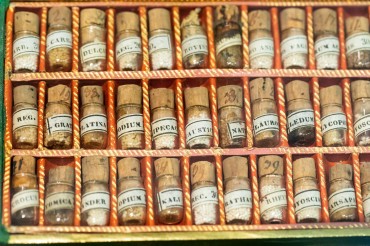Today’s fast-paced life has several hallmarks: modern living, advanced technology, fancy homes, and faster cars among a myriad of other things. Unfortunately, often found smack in the middle of this lifestyle is an increasing number of ailments and consequently rising healthcare costs. These ailments, a byproduct of the accelerated lifestyle, have lead to growing awareness of Ayurveda in the pursuit of finding a remedy.
Ayurveda, among the oldest systems of medicine in the world, has been practiced in India for more than five thousand years. A combination of two Sanskrit words, ‘ayur’ (life) and ‘veda’ (knowledge), this form of medicine employs a holistic approach that helps not only heal said maladies, but also aids the development of a healthy lifestyle.
In fact, the World Health Organization estimates that nearly 80 per cent of the world’s population uses herbal medicine, a major component of Ayurveda, as a part of primary care. Furthermore, it is approximated that 65 per cent people in India, 80 per cent in Africa and 40 per cent in China avail natural remedies as the prime measure for healthcare.

As a matter of truth, benefits such as longevity, the assurance of safety and potency of the medicaments used in Ayurvedic treatment has rendered this system’s primal means of healthcare for a sizable group of the world’s population. Then there’s also the green crusade and the mass’ continually developing desire to exist in an organic and sustainable environment has also aided the movement.
Considering the aforementioned numbers, many may be inclined to think that the phenomenon of Ayurveda has already made a strong case for itself as a form of mainstream medicine. That assumption, unfortunately, would not be true. It is still viewed as an alternative medical system, perhaps because of an obvious deficiency in research about the subject matter and lack of scientific validation.
However, that is not to say that there have been no endeavors to further the cause at all. While a considerable number of groups have undertaken the effort to win science’s corroboration, the government and non-profit organizations are also doing their part. Additionally, increased access to material about ancient medical systems in recent times have also helped dismiss myths such as Ayurvedic medicines lack clinical testing and that they are relatively slow in providing cure.
Image Source: franchiseindia.com; india.com























































Comments